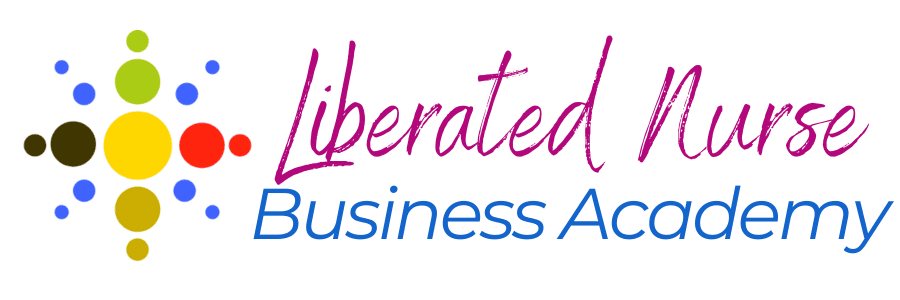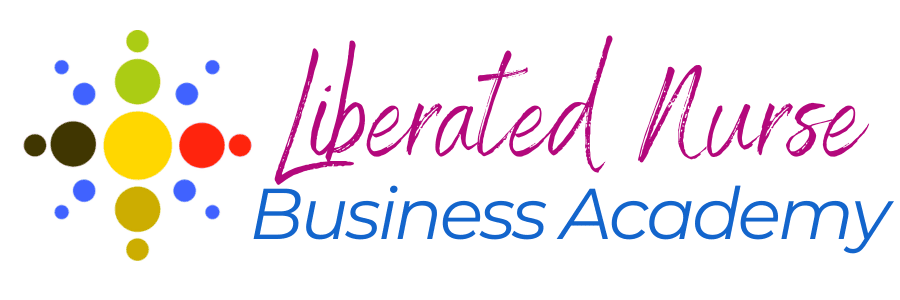A Detailed Exploration of Business Opportunities for Aspiring Nurse Entrepreneurs

Are you a nurse who’s thinking of starting a business? There are countless nurse business ideas, and having a nursing education opens up even more possibilities. Nurses have business advantages over the general population due to our experiences, skills, work ethics, and public trust.
Nurse entrepreneurs use their professional nursing experience and education to start businesses in healthcare and other business sectors. Businesses established by nurse entrepreneurs may include developing and selling a health product or medical device or offering independent nursing services, such as health coaching, health education, home health, and many others. A nursing career path that includes entrepreneurship offers independence and autonomy and requires creativity, hard work, and strong business skills.
When nurses are successful in their own businesses, they can increase their income, satisfaction, and freedom to even higher levels than when they were employees.
Becoming a Nurse Entrepreneur
Nurse entrepreneurs work for themselves, so the skills required vary depending on the nature of their business venture. In general, the following skills and qualifications are beneficial for nurse entrepreneurs:
A valid RN license
Prior professional nursing experience in the business area of focus
Basic business skills and knowledge (e.g., accounting, marketing, and sales)
Good communication skills for interacting with customers, patients, and employees
Ability to work independently and willing to take on personal financial risk
What Are the Education Requirements for a Nurse Entrepreneur?
In general, nurse entrepreneurs have completed at least an ADN or BSN degree and attained an RN license in their state, but some business opportunities are also open to LPNs/LVNs. Business education is highly valuable and may include informal training or mentoring in business skills, taking a few courses in business, or attaining a business degree.
Are Any Certifications or Credentials Needed?
No specific certifications or credentials are required to become a nurse entrepreneur. However, depending on the nature of their business, certain certifications may be valuable.
The day-to-day responsibilities of a nurse entrepreneur depend on the specific venture but usually include activities related to running a business, such as accounting, marketing, sales, and developing a customer base.
Note: If you search for nurse business education opportunities online, you will find many terms describing nurse business owners, including nursing consultants, self-employed nurses, nurse entrepreneurs, independent nurse contractors, independent registered nurses, and nurses in private or group practice. One company that provides nurse business coaching and education for all of those types is New Directions for Nurses, dba LiberatedNurse.com.
First, Check Your State’s Nurse Practice Act
Before you invest time or money into starting a nurse business, check your state’s Nurse Practice Act (NPA) to discover if what you want to do is within your legal right as a nurse. In some cases, nurses are more limited than the general public in their business activities.
The American Holistic Nurses Association (AHNA) has a web page that gives nurses access to the Nurse Practice Acts in all 50 states, and they update it every year. Check your state’s NPA here: https://www.ahna.org/Home/Resources/State-Practice-Acts
If your practice does not fit within the definition and scope of practice for a nurse in your state, you may be violating the law. The definition of nursing differs from state to state, but you will usually find it near the beginning of the Act.
If you are not 100% clear that your business activity is allowed, consult a lawyer who is familiar with nurse-owned businesses. Check with the National Nurses in Business Association (NNBA) for recommendations and other valuable nurse business resources.
What Are Your Interests and Skills?
Selecting the nurse business ideas that are best for you requires evaluating your skills, goals, and interests. To narrow the field of possibilities, ask yourself if you enjoy and are good at any of these services:
- Educating others about medical or health-related issues
- Designing and implementing wellness programs for individuals or groups
- Identifying problems and solutions in healthcare organizations
- Providing companion services
- Providing medical equipment and supplies
- Reviewing care provided by others and creating patient safety and well-being programs
- Providing a nurse’s analysis of healthcare situations to lawyers as a nurse consultant
1. Home Health or Home Care Agency
The home health service and home care agency models present compelling business opportunities for nurses. While both services cater to individuals needing assistance, home health focuses on medical care provided by nurses and therapists, while home care offers non-medical support through licensed care aides. This distinction is crucial for those considering starting a business in this sector.
Description: Home health and home care services are similar but different. Understanding the distinction between these is crucial, though many companies bridge the two by offering a comprehensive range of medical and non-medical services.
- Home health services provide nurses and therapists who focus on clinical and rehabilitative care, including wound care, medication administration, and physical therapy.
Home care services are non-medical and include bathing, cooking, and companionship assistance. Licensed care aides typically provide these services.
Target Market: Elderly individuals requiring assistance with daily living and individuals of any age who are recovering from surgery, chronic conditions, or disabilities.
Potential Startup Costs: $60,000 - $100,000+ (including licensing, insurance, initial staffing, and equipment)
Necessary Qualifications: Registered Nurse (RN) license - Home Health Agency License (state-specific) - Medicare certification - Medicaid certification (state-specific)
Successful Nurse Business Example: Cathy Thorpe, RN, founded the home care agency "Nurse Next Door." This company provides holistic, personalized home care with a strong emphasis on creating a "happier aging" experience for clients. It has more than 400 franchise offices across the US, Canada, England, and Australia.
Potential Challenges: Navigating complex healthcare regulations and licensing requirements - Managing a team of healthcare professionals - Ensuring consistent quality of care
Tips for Success: Develop strong relationships with local hospitals and physicians for referrals - Implement robust quality control measures and ongoing training for staff - Utilize technology for efficient scheduling and patient management
2. Health and Wellness Coaching and Consulting
Nurses have the knowledge and skills to help people across the lifespan improve their health and well-being. Health and wellness coaching and consulting is an ideal way for nurses to use their expertise to make a difference in the lives of others. As a health and wellness coach or consultant, you can help clients achieve their health goals through personalized guidance, education, and support.
Description: Coaches offer personalized nurse coaching services to help clients achieve their health goals through lifestyle changes, nutrition advice, and stress management techniques. Consultants offer non-personalized education in health and other topics to individuals, groups, and organizations.
Target Market: Individuals seeking to improve overall health and wellness - People with chronic health conditions looking for lifestyle management - Corporate clients seeking wellness programs for employees
Potential Startup Costs: $5,000 - $20,000 (including certification, website development, and initial marketing)
Necessary Qualifications: Nursing degree (RN) - Optional nurse coach certification, e.g., from the American Holistic Nurse Credentialing Corporation (AHNCC) or the National Board for Health and Wellness Coaching (NBHWC) - Continuing education in nutrition or other specific wellness areas is beneficial
Successful Nurse Business Example: Nicole Vienneau, MSN, RN, NC-BC, founded Blue Monarch Health, PLLC. This company has two foci: It consults with small businesses to establish unique healing environments so everyone feels their best at work. It also helps mid-life women who are stressed, exhausted, and saying ‘yes’ to everyone find peace, passion and joyful work-life balance.
Potential Challenges: Standing out in a crowded market - Establishing credibility as a nurse coach - Balancing one-on-one nurse coaching with scalable business growth
Tips for Success: Obtain additional nurse business education designed for nurse coaches and consultants to help you attract clients with clear messaging and a strong online presence
3. Health Writing and Content Creation
With their unique health and medical education, nurses can create engaging and informative content that can benefit a wide range of audiences. Whether you're looking to write for healthcare websites, medical journals, or patient education materials, there are numerous opportunities to make a positive impact.
Description: Use your medical knowledge to create content for healthcare websites, medical journals, or patient education materials.
Target Market: Healthcare websites and blogs - Pharmaceutical companies - Medical device manufacturers - Healthcare marketing agencies - Medical journals and publications
Potential Startup Costs: $1,000 - $5,000 (including computer equipment, software, and initial marketing)
Necessary Qualifications: ANY Clinical Background, including LPNs/LVNs - Strong writing skills - Familiarity with medical terminology and research methods - Optional but beneficial: Certification in medical writing
Successful Nurse Business Example: Elizabeth Hanes, RN, is a successful medical writer who went on to found RN2writer, an educational platform that teaches nurses how to become freelance health writers.
Potential Challenges: Staying up-to-date with the latest medical research and guidelines - Balancing accuracy with readability for diverse audiences - Finding consistent clients or projects
Tips for Success: Develop niche expertise (e.g., pediatrics, oncology, or mental health) - Build a portfolio of published work to showcase your skills - Network with medical communications agencies and healthcare publications
4. Nurse Practitioner Telemedicine
Telemedicine allows nurse practitioners to offer virtual healthcare services remotely. This section explores the opportunities and considerations for establishing a nurse practitioner telemedicine service in your business.
Description: Provide virtual healthcare services or consultations to clients via video calls or messaging platforms.
Target Market: Individuals seeking convenient, remote healthcare services - Rural or underserved communities with limited access to healthcare - Individuals with mobility issues or time constraints
Potential Startup Costs: $10,000 - $50,000 (including telemedicine software, computer equipment, and licensing fees)
Necessary Qualifications: Active APRN license - Familiarity with telemedicine platforms and digital health technologies - Optional certifications in telemedicine (e.g., from the American Telemedicine Association)
Successful Nurse Business Example:Nurse Practitioners Business, founded by Barbara C. Phillips, NP, offers business education and consulting services for nurse practitioners looking to start their own in-person and telemedicine practices.
Potential Challenges: Adapting to the technology and workflow of telemedicine - Ensuring patient privacy and data security - Navigating state-specific telemedicine regulations
Tips for Success: Invest in reliable business education designed for nurse practitioners - Use HIPAA-compliant telemedicine software - Develop clear protocols for virtual assessments and follow-ups - Stay informed about evolving telemedicine laws and reimbursement policies
5. Medical Device or Healthcare Product Development
Medical device or healthcare product development is an exciting and rewarding field that allows nurses to combine their clinical knowledge and entrepreneurial spirit. By identifying gaps in patient care and using their expertise to develop innovative solutions, nurses can significantly impact healthcare. This section will explore the opportunities and challenges of starting a medical device or healthcare product development business and provide tips for success.
Description: Use your clinical experience to identify gaps in patient care and develop innovative medical devices or products to address these needs.
Target Market: Healthcare facilities (hospitals, clinics, long-term care facilities) - Home healthcare providers - Individuals with specific medical needs
Potential Startup Costs: $100,000 - $1,000,000+ (depending on the complexity of the device and regulatory requirements)
Necessary Qualifications: Nursing degree (RN or BSN) - Experience in the relevant clinical area - Knowledge of medical device regulations (FDA requirements) - Collaboration with engineers or product designers
Successful Nurse Business Example:Nurses Inspire Nurses, founded by Marsha Battee, RN, developed the “NurseWatch,” a specialized watch for nurses that combines multiple tools they need during their shifts.
Potential Challenges: Navigating the complex process of medical device approval - Securing funding for research and development - Competing with established medical device companies
Tips for Success: Collaborate with engineers or product designers to bring your ideas to life - Seek mentorship from experienced medical entrepreneurs - Consider partnering with a medical device incubator or accelerator program
6. Nursing Continuing Education and Training Services
A nursing continuing education and training services business can be a rewarding venture for nurses who want to share their knowledge and expertise with fellow healthcare professionals. Below are key points about the target market, potential startup costs, necessary qualifications, successful nurse business examples, potential challenges, and tips for success in this rapidly growing field.
Description: Develop and deliver specialized training programs or courses for healthcare professionals seeking to expand their skills or maintain certifications.
Target Market: Nurses and other healthcare professionals requiring continuing education credits - Healthcare facilities seeking staff development programs - Nursing students preparing for NCLEX or other certifications
Potential Startup Costs: $10,000 - $50,000 (including course development, e-learning platform, and marketing)
Necessary Qualifications: Advanced nursing degree (BSN, MSN, or DNP) - Expertise in specific clinical areas or skills - Teaching experience or instructional design skills - Accreditation from relevant nurse education bodies
Successful Nurse Business Example:NURSING.com, founded by Jon Haws, RN, offers a comprehensive online learning platform for nursing students and practicing nurses, providing NCLEX prep and continuing education courses.
Potential Challenges: Creating engaging and effective educational content - Marketing your courses to healthcare institutions or individual professionals - Keeping course content up-to-date with evolving medical practices
Tips for Success: Focus on niche topics or skills that are in high demand - Leverage e-learning platforms to reach a wider audience - Partner with healthcare organizations or professional associations for a broader reach
7. Healthcare Staffing Agency
Healthcare professionals are in high demand, and healthcare staffing agencies can be crucial in connecting facilities with qualified nursing professionals for temporary or permanent positions. Starting a healthcare staffing agency can be a rewarding and lucrative business opportunity for nurses with a strong entrepreneurial spirit and a passion for helping healthcare facilities and professionals. This section explores the target market, potential startup costs, necessary qualifications, successful nurse business examples, potential challenges, and tips for success in the healthcare staffing industry.
Description: Start an agency that connects healthcare facilities with qualified nursing professionals for temporary or permanent positions.
Target Market: Hospitals and healthcare facilities with staffing needs - Travel nurses seeking new opportunities - Healthcare professionals looking for flexible work arrangements
Potential Startup Costs: $50,000 - $200,000 (including licensing, insurance, initial marketing, and technology platform)
Necessary Qualifications: Nursing background (RN) - Understanding of healthcare staffing regulations - Strong networking and relationship-building skills - Business management experience is beneficial
Successful Nurse Business Example:Cascade Health Services, founded by two visionary RNs in 1988, has grown into a successful healthcare staffing agency with more than 2500 employees serving more than 800 facilities.
Potential Challenges: Building a large network of qualified healthcare professionals - Competing with established staffing agencies - Managing the complexities of healthcare credentialing and compliance
Tips for Success: Develop a user-friendly platform for matching nurses with job opportunities - Offer value-added services such as credentialing assistance or continuing education - Focus on a specific niche (e.g., travel nursing or specialized nursing fields)
8. Legal Nurse Consultants
Nurses passionate about healthcare and legal matters can find a fulfilling career as a Legal Nurse Consultant (LNC). By leveraging their nursing background and clinical experience, LNCs play a crucial role in assisting attorneys, law firms, and healthcare providers. This section delves into the world of legal nurse consulting, uncovering the target market, potential startup costs, necessary qualifications, successful nurse business examples, potential challenges, and tips for success in this specialized field.
Description: Help lawyers evaluate evidence, confirm healthcare facts, prepare for litigation, and prove their cases. LNCs also prepare analyses and documents, testify as expert witnesses, and educate legal staff on nursing and healthcare issues. As a nurse, you already have the foundation to succeed as a legal nurse consultant (LNC).
Target Market: Attorneys, particularly those practicing in areas like medical malpractice, personal injury, workers' compensation, and long-term care.
Potential Startup Costs: $3,000 to $15,000 (including certification, business licensing, liability insurance, and initial marketing)
Necessary Qualifications: Nursing degree (RN) - This nurse consulting business best suits experienced nurses with strong clinical expertise and attention to detail.
Successful Nurse Business Example: Lorie Brown, RN, MN, JD, started her legal nurse consulting business over 25 years ago. Now she teaches nurses how to follow her proven system for success. Learn more at Empowered Nurses.
Potential Challenges: Adapting to regulatory changes, communicating complex medical concepts, ethical conflicts, and maintaining professional integrity
Tips for Success: Focus on developing strong communication skills, building a solid understanding of both medical and legal practices, actively networking with attorneys, joining professional associations like the AALNC, attending relevant conferences, maintaining accuracy in medical record analysis, and being prepared to testify as an expert witness when needed
9. Patient Advocacy Services
In today's complex healthcare system, patients often struggle to understand their treatment options, navigate the medical bureaucracy, and communicate effectively with healthcare providers. Nurses with specialized training and experience can offer patient advocacy services, providing valuable support and guidance to individuals and families facing complex medical situations.
Description: Offer services to help clients navigate the complex healthcare system, understand their treatment options, and communicate effectively with healthcare providers.
Target Market: Individuals with complex medical conditions - Elderly persons and their families - Individuals facing significant medical decisions or procedures
Potential Startup Costs: $5,000 - $20,000 (including certification, insurance, and initial marketing)
Necessary Qualifications: Nursing degree (RN) - Patient Advocate Certification (e.g., from the Patient Advocate Certification Board) - Strong communication and negotiation skills - Knowledge of healthcare systems and patient rights
Successful Nurse Business Example:Nurse Advocate Partners, founded by Teri Dreher, RN, has become a successful patient advocacy firm that offers a range of services to help individuals and families navigate complex medical situations.
Potential Challenges: Defining the scope of your services and setting appropriate boundaries - Building trust with clients and healthcare providers - Staying informed about patients’ rights and healthcare policies
Tips for Success: Obtain additional education in patient advocacy - Develop strong communication and negotiation skills - Build relationships with local healthcare providers and community organizations
Discover and Do What You Love
As you can see, there are many options for nurses who want to start a business. If you want to be a nurse entrepreneur, your first task is to identify the types of people you will love working with and the problems you most enjoy helping them solve. Then, test your ideas.
The National Nurses in Business Association offers resources, self-employment ideas, and training for its members. Another top resource is LiberatedNurse.com. This holistic business development community provides business coaching and continuing education (CE) courses designed by nurse entrepreneurs to help nurses start and grow thriving businesses they love.
Conclusion
As a nurse, your skills and experience provide a strong foundation for entrepreneurship in the healthcare sector. Each of the nurse business ideas above offers unique opportunities to leverage your expertise, make a meaningful impact, and achieve greater career freedom and flexibility. When entering nurse entrepreneurship, remember to:
Conduct thorough market research to identify gaps and opportunities in your chosen niche
Develop a solid nurse business plan and seek mentorship from experienced nurse entrepreneurs
Stay informed about healthcare regulations and follow the guidelines attached to your licenses or certifications
Continuously update your skills and knowledge to stay competitive
Network with other healthcare professionals and join relevant industry associations
Visit LiberatedNurse.com today for business education designed BY nurse entrepreneurs FOR nurse entrepreneurs. Discover innovative ways to apply your skills, achieve personal and professional growth, and make a positive difference in people’s lives within and beyond conventional healthcare settings.
If you're not sure if starting a business is right for you, check out our Liberated Nurse Entrepreneur Starter Kit course.


